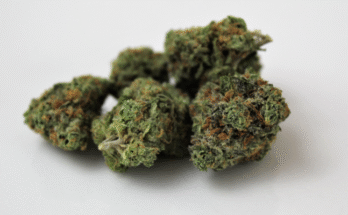The global tide is turning. Israel has recently announced that they will legalise recreational cannabis within the next year, stating there is no justification for its prohibition.
Meanwhile, a number of U.S states achieved reforms during the recent U.S election.
On top of this, the U.S is getting ready to vote on the MORE act, which could decriminalise cannabis at the federal level, and the United Nations will vote in December whether to follow the WHO’s suggestion to remove cannabis from the Single Convention on Narcotic Drugs of 1961.
All these developments will no doubt have a big effect on cannabis reforms in the rest of the world. Not least in Europe and the UK, where movements are gathering pace in the fight against prohibition.
With new countries and states adopting legal cannabis frameworks, we can also expect mounting real-life data to spur on legalisation campaigns and enhance ground support in other countries.
Put simply, world-wide cannabis reform looks likely over the coming decade. The green wave is well and truly gaining momentum.
Israel
Israel has recently announced a plan to fully legalise cannabis within the next year. Israeli Justice Minister, Avi Nissenkorn, said a legal bill will be presented at the end of November and will go to Knesset (legislative branch of the Israeli government) in December for an initial vote. First legal sales may begin in the last quarter of 2021.

The proposed model is expected to be similar to Canada’s, with stores able to sell to those over 21 (including tourists), no homegrows without a licence, and a ban on edibles that resemble candy. Pricing will be reasonable in order to compete with the blackmarket.
The announcement comes after an extensive and in-depth, government-backed exploration of how the regulation of Israel’s cannabis market may look. Presenting the main conclusions, Deputy Attorney-General Amit Merari told the Justice Ministry that as the drug is very common in public use, there is no justification for its prohibition, and that its legal consequences currently outweigh its medical consequences, reports the Jerueslem Post.
Indeed, cannabis use is very popular in Israel, with an estimated 27% of adults consuming cannabis. They have allowed cannabis for medical use since the 1990s, and now have over 70,000 registered patients. They also have aspirations to become a main producer and exporter of cannabis. The UK being one of those countries now allowing Israeli imports.
United States
In true 2020 fashion, this year’s U.S election was a showstopper. And even though the fight for presidency looks to be dragging on, a number of state ballot initiatives around the country made positive moves in the quest for cannabis law reform.
New Jersey, South Dakota, Montana and Arizona all voted yes on recreational legalisation, with South Dakota and Mississippi also legalising medical use.
Meanwhile, the state of Oregon voted to decriminalise all drugs, meaning possession of small amounts of even Class A drug will result in a fine. Oregan also legalised psilocybin, while Washington D.C decriminalised ‘magic mushrooms’ and other psychedelic drugs.
And then there’s the promise made by the Democrats to decriminalise cannabis should they win the presidency.

Overall, the fact that such traditionally conservative states have voted for legalisation, either recreational or medical, gives tremendous hope for country-wide reform. And, consequently, this could also have a ripple effect on many other nations who will be looking for economic boosts following a tumultuous year brought about by the virus.
MORE act
The MORE Act, if passed, would fully remove cannabis from the Controlled Substances Act, effectively decriminalising cannabis in the whole of the United States.
While it has support from the Democratic leadership – potential Vice President Kamala Harris is the lead Senate sponsor – the MORE act may be a non-starter in a Mitch McConnell controlled Senate. However, if the Democrats manage to take control of the Senate, then the MORE Act could become the most likely chance for federal cannabis reform.
Regardless of whether it passes or not, the fact is that cannabis reform has never been so widely desired by Americans. With massive electoral victories for cannabis across the country, it’s simply a matter of time before politicians catch up with the people’s demands.
UN December vote
In 2019, the World Health Organisation recommended that cannabis should be reclassified under the United Nations drug treaties.
After delaying a vote on the matter for the second time this March, the United Nations’ Commission on Narcotic Drugs (CND) will now vote on the WHO’s proposals in December 2020.

While the vote could go either way, rescheduling at the UN level would have Should the CND’s adopt WHO’s recommendations, it would represent a symbolic shift across the international community, with significant implications for the global cannabis reform movement.
Summary
2020 is shaping up to be a monumental year for cannabis reform. Israel is the latest country to announce the legalisation of recreational cannabis, while a number of U.S states saw various forms of reform during the recent election.
And then there is the prospect of federal decriminalization in the U.S, as well as a historic UN vote on the descheduling of cannabis based on the recommendations of the WHO.
If you couldn’t see it before, make no doubt that the push back against cannabis prohibition is building throughout the world – and even in the UK.
Mankind has made use of cannabis for millenia and 50 years of prohibition has done little to dissuade its use. Expect more cards to fall over the coming years as cannabis reform movements build momento.




